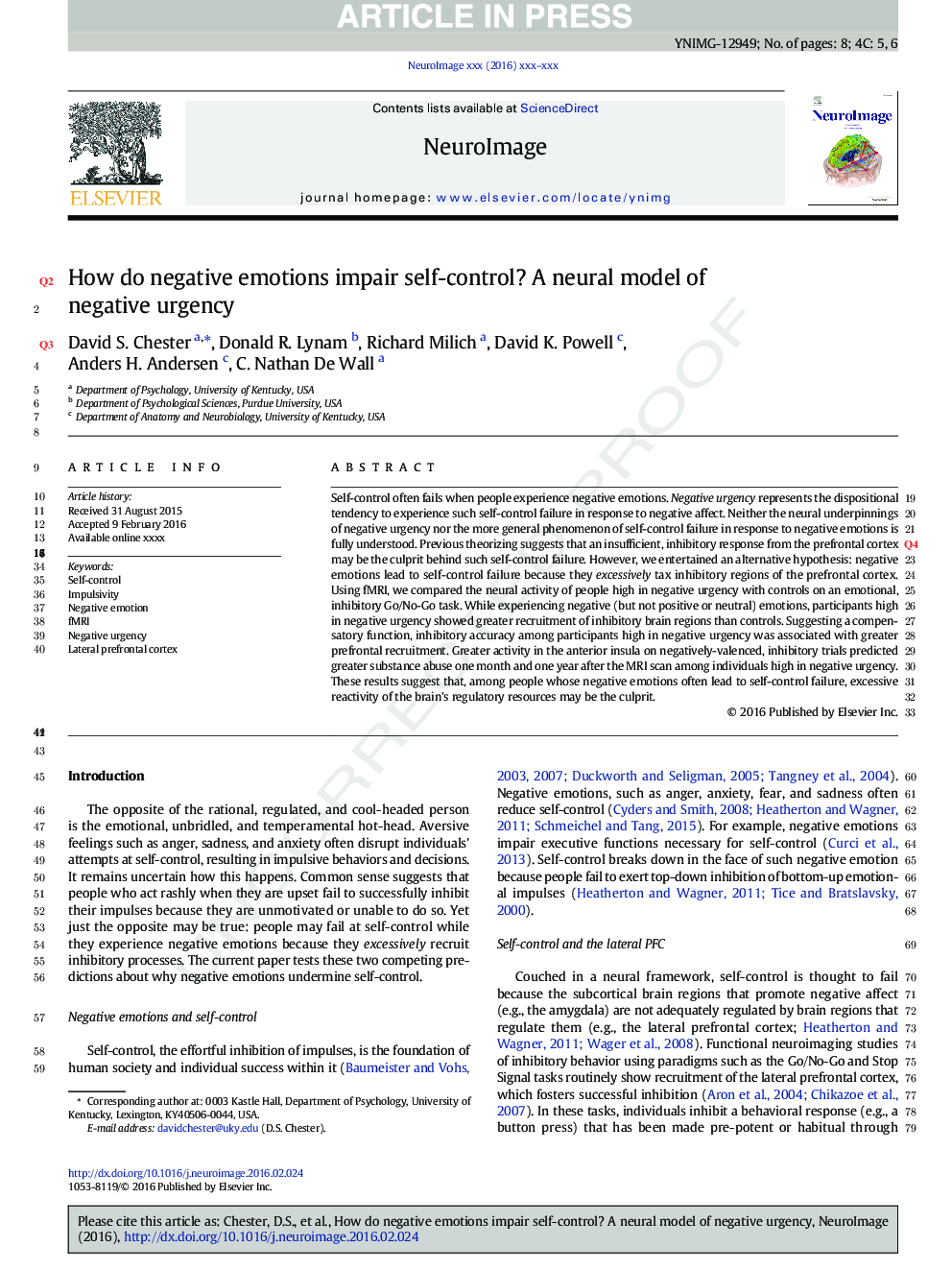| کد مقاله | کد نشریه | سال انتشار | مقاله انگلیسی | نسخه تمام متن |
|---|---|---|---|---|
| 6023689 | 1580876 | 2016 | 8 صفحه PDF | دانلود رایگان |
عنوان انگلیسی مقاله ISI
How do negative emotions impair self-control? A neural model of negative urgency
ترجمه فارسی عنوان
احساسات منفی چگونه کنترل خود را کنترل می کنند؟ یک مدل عصبی فوری منفی
دانلود مقاله + سفارش ترجمه
دانلود مقاله ISI انگلیسی
رایگان برای ایرانیان
کلمات کلیدی
موضوعات مرتبط
علوم زیستی و بیوفناوری
علم عصب شناسی
علوم اعصاب شناختی
چکیده انگلیسی
Self-control often fails when people experience negative emotions. Negative urgency represents the dispositional tendency to experience such self-control failure in response to negative affect. Neither the neural underpinnings of negative urgency nor the more general phenomenon of self-control failure in response to negative emotions are fully understood. Previous theorizing suggests that an insufficient, inhibitory response from the prefrontal cortex may be the culprit behind such self-control failure. However, we entertained an alternative hypothesis: negative emotions lead to self-control failure because they excessively tax inhibitory regions of the prefrontal cortex. Using fMRI, we compared the neural activity of people high in negative urgency with controls on an emotional, inhibitory Go/No-Go task. While experiencing negative (but not positive or neutral) emotions, participants high in negative urgency showed greater recruitment of inhibitory brain regions than controls. Suggesting a compensatory function, inhibitory accuracy among participants high in negative urgency was associated with greater prefrontal recruitment. Greater activity in the anterior insula on negatively-valenced, inhibitory trials predicted greater substance abuse one month and one year after the MRI scan among individuals high in negative urgency. These results suggest that, among people whose negative emotions often lead to self-control failure, excessive reactivity of the brain's regulatory resources may be the culprit.
ناشر
Database: Elsevier - ScienceDirect (ساینس دایرکت)
Journal: NeuroImage - Volume 132, 15 May 2016, Pages 43-50
Journal: NeuroImage - Volume 132, 15 May 2016, Pages 43-50
نویسندگان
David S. Chester, Donald R. Lynam, Richard Milich, David K. Powell, Anders H. Andersen, C. Nathan DeWall,
